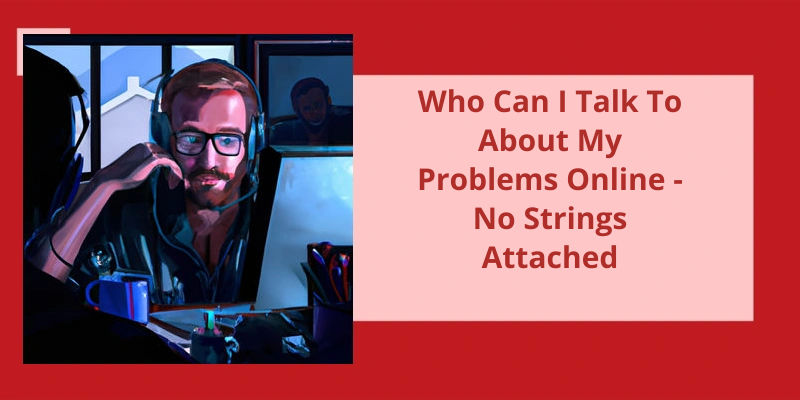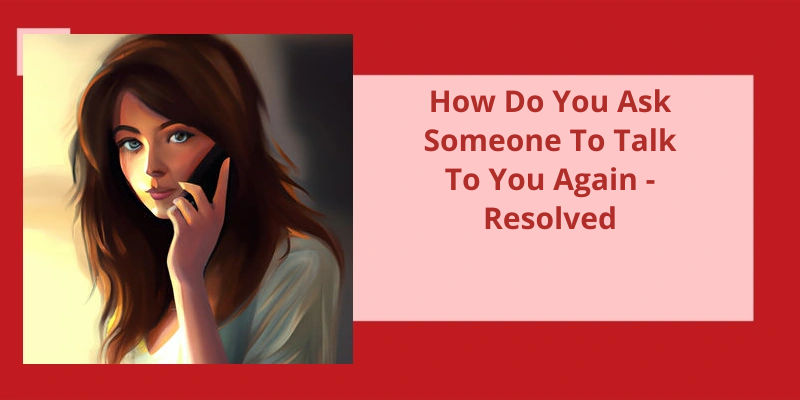In matters of the heart, there often comes a time when we find ourselves at a crossroads, unsure of whether to express our true feelings to someone or to simply walk away. This internal struggle can be overwhelming, as it involves navigating the delicate balance between vulnerability and self-preservation. Should we muster the courage to share our emotions, risking rejection and potential heartbreak? Or should we choose the path of detachment, shielding ourselves from potential disappointment? This conundrum isn’t unique, and through personal experience and insights, one can navigate this decision with clarity and wisdom. This article delves into the complexities of deciding whether to tell someone how you feel or walk away, exploring the lessons learned along the journey of love and self-discovery.
Will He Commit if I Walk Away?
In matters of the heart, there often comes a point where one is faced with the question: should I tell him how I feel or walk away? It’s a decision that carries weight and uncertainty, leaving us wondering if taking that leap of faith will lead to the commitment we desire. While there are no guarantees in matters of love, walking away can sometimes create the space and opportunity for something more.
When you choose to walk away from a situation, you’re essentially creating a void in the other persons life. It’s in this absence that they may realize just how much they care about you. Without your presence, they may find themselves longing for your companionship, questioning their own feelings, and ultimately evaluating their priorities. This separation can serve as a wake-up call, prompting them to take action on their emotions.
When you remove yourself from the equation, you give him the chance to assess his emotions and make a decision. He may realize that he cant imagine his life without you, that he wants to commit and build a future together. Alternatively, he may come to the realization that he’s not ready for commitment or that his feelings don’t match yours. Those scenarios can be painful, but they offer clarity and allow you to move forward with your own life.
Ultimately, whether he commits or not is out of your control. You can only control your own actions and choices. If you choose to walk away, do it with grace and leave the door open for him to pursue you if he truly wants to. At the same time, be prepared for the possibility that he may not choose to commit, and be ready to move on with your life knowing that you made a decision based on your own needs and desires.
In addition to the emotional impact of walking away, there’s another potential outcome that may come into play: the realization that he doesn’t want to be alone. Research has shown that being alone can have negative effects on mental and physical well-being, and this newfound sense of solitude may prompt him to reevaluate his feelings and take action.
Will Walking Away Make Him Realize?
Will walking away make him realize? Another power of walking away is that he may realize he doesn’t want to be alone. Once you decide to leave, he may understand that he’s alone and doesn’t want to be. This could cause him to act on his feelings. A 2018 study shows that being alone can harm your mental and physical health.
When you walk away, you’re removing yourself from his life, and this absence may create a void that he didnt realize he’d feel. As humans, we often don’t realize the value of something until it’s gone.
Additionally, walking away can also place the focus on you. By prioritizing your own well-being and choosing to remove yourself from a situation that doesn’t serve you, you’re sending a powerful message to yourself and others. This act of self-love can attract positive energy and potentially open up new opportunities in your life.
It’s important to note, though, that walking away doesn’t guarantee a specific outcome. It isn’t a magical solution that will automatically make him realize his feelings or make him come running back to you. People have their own thoughts, emotions, and free will, and they may not always react the way we hope or expect them to.
Ultimately, the decision of whether to tell him how you feel or walk away depends on your own personal circumstances and what feels right for you. It’s important to consider your own well-being, desires, and priorities in making this decision. Take the time to reflect on what you truly want and need, and trust yourself to make the choice that aligns with your own happiness and growth.
Signs That It May Be Time to Walk Away From a Relationship
- You feel consistently unhappy and unfulfilled in the relationship.
- Your partner shows a lack of respect and constantly belittles you.
- There’s a pattern of infidelity or betrayal.
- There’s a history of physical or emotional abuse.
- Your goals, values, and priorities are no longer aligned.
- You constantly find yourself compromising your own happiness.
- Communication has become ineffective or non-existent.
- You no longer trust or feel safe with your partner.
- Your partner consistently dismisses your feelings and needs.
- You’ve individually grown in different directions.
- Your partner refuses to take responsibility for their actions.
- You feel unsupported and don’t feel like an equal in the relationship.
- You’ve lost your sense of self and personal identity.
- Your own mental health and well-being are being negatively affected.
- The relationship has become stagnant and lacks growth or progress.
Conclusion
In navigating the uncertain landscape of matters of the heart, one question often arises: Should I tell him how I feel or walk away? While there’s no definitive answer that aligns with every situation, one key lesson to remember is the importance of communication and honesty. Expressing one's emotions can lead to a deeper understanding and potentially pave the way for a fulfilling relationship. However, it’s equally crucial to recognize the value of personal boundaries and self-respect. Walking away, in some cases, can be a strong act of self-preservation, preventing further heartache and allowing room for new opportunities. Ultimately, the decision should be based on an honest evaluation of one's feelings, the context of the relationship, and the individual's overall well-being.






